[ad_1]
Skincare model Aesop has collaborated with designer Samuso Hyojadong to create a retailer in Seochon, Seoul, that options an open facade and an outsized stone plinth.
Positioned in one of many oldest neighbourhoods of Seoul’s Jongno-gu district, the Seochon outlet was created to “match harmoniously inside its native context”, in line with Aesop’s design staff.
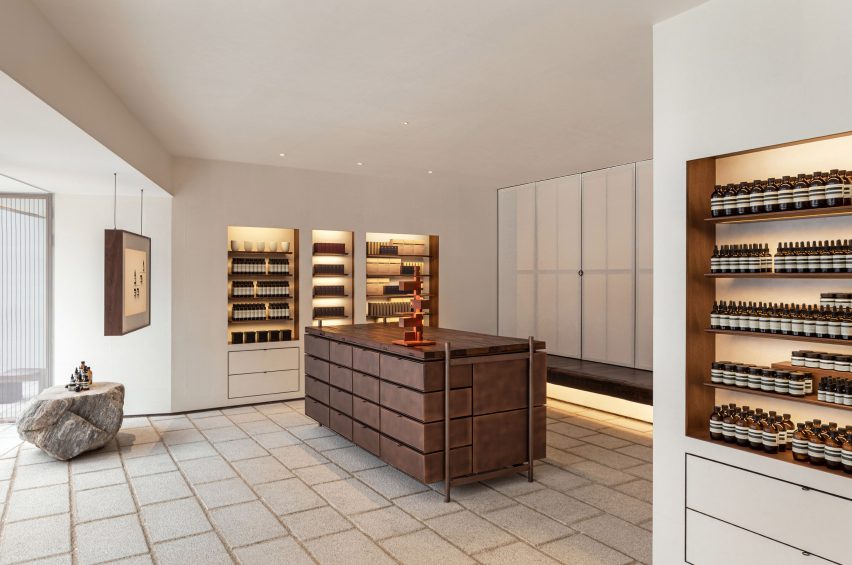
When designing the shop, Aesop and Hyojadong took cues from the structure of jeongjas – conventional Korean pavilions with no partitions, which function areas for resting and taking within the surrounding views.
The road-facing facade was created with mesh metallic screens that may open out solely to create a storefront with no partitions. As soon as closed, the woven metallic backing creates translucent home windows via which passersby observe the softly lit silhouettes of uniform rows of bottles.
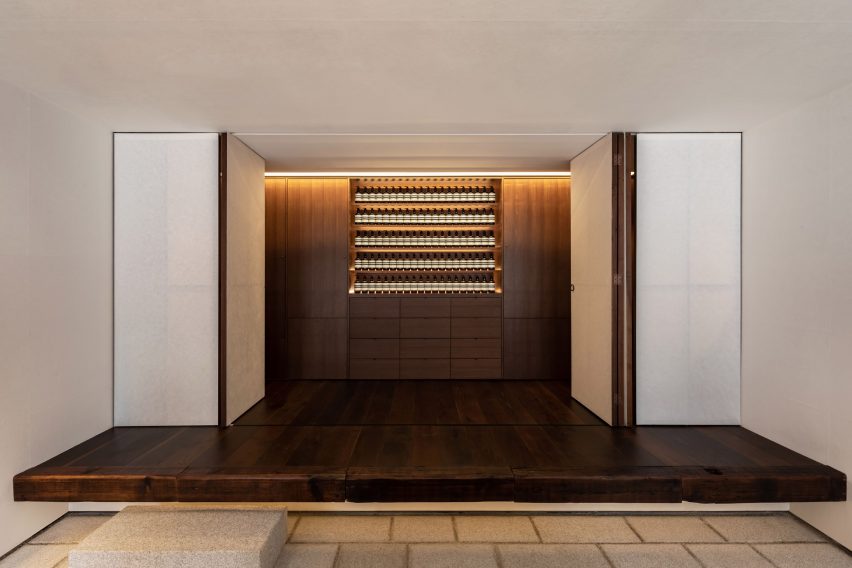
“Samuso prolonged the floorplate outwards to create a threshold that conveys a beneficiant sense of hospitality,” the Aesop design staff instructed Dezeen.
“One [jeongja] specifically that impressed us was the Soswaewon within the Damyang area, which was constructed within the sixteenth century and is surrounded by a verdant backyard.”
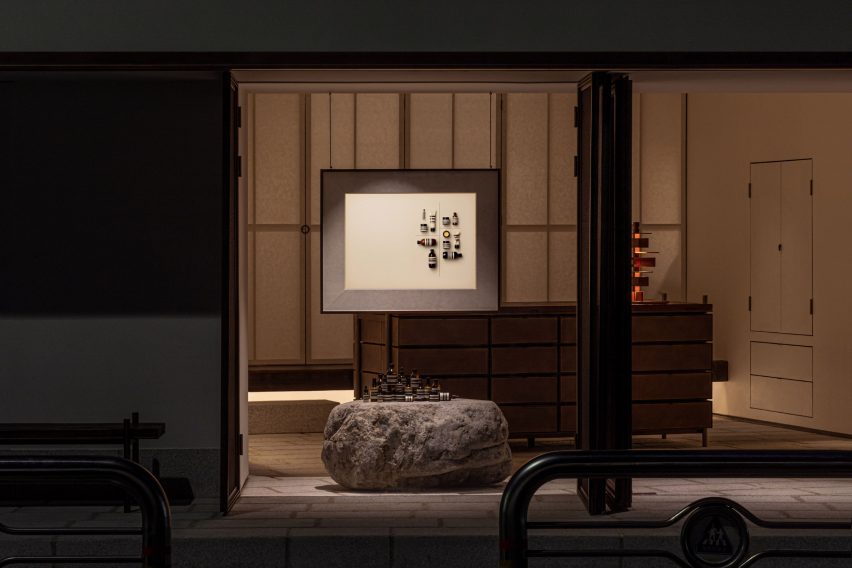
For the shop’s materials palette, the designers referenced the timber and stone which can be usually used to construct conventional Korean homes often called hanoks.
A big, rough-edged stone plinth displaying clusters of merchandise was positioned on the entrance whereas varied wood accents have been created with timber reclaimed from salvage yards and an deserted home.
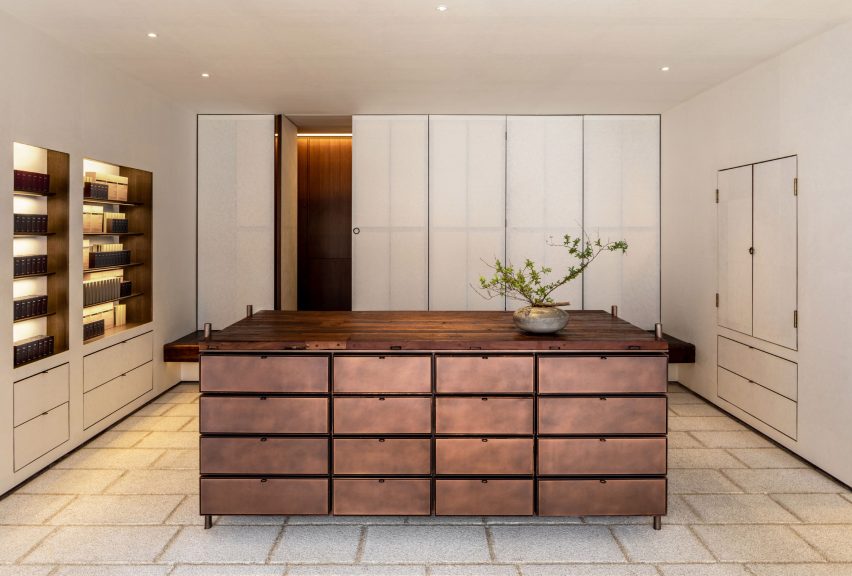
The shop was additionally constructed on a raised stone platform, which nods to the normal structure.
Hanji paper created from mulberry tree bark sourced from South Korea’s Gyeongnam province options on the shop’s partitions, which body central geometric cabinetry and glossy faucets product of domestically produced aged copper.
The designers have been restrained of their use of sanding, sealants and coatings when treating the supplies, opting to embrace their “pure imperfections”.
“Sensitivity to texture on this retailer is superlative,” mirrored the design staff. “Samuso wished every materials to specific itself straight, with out an excessive amount of human intervention,” it continued, referencing the roughness of the stone and the reclaimed timber’s undulating texture.
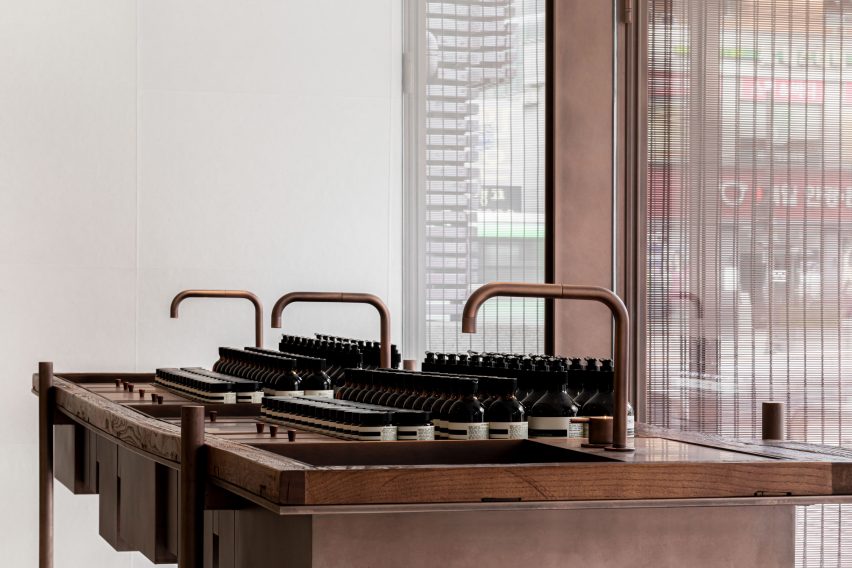
Rosewood was used to create the shop’s signature perfume armoire, which is hidden from view till opened out and was conceived as a conventional Korean jewelry field, in line with the design staff.
“All through the shop, we have been compelled by a want to dissolve the boundaries between inside and outdoors, between the naturally occurring and the human-made,” concluded the designers.
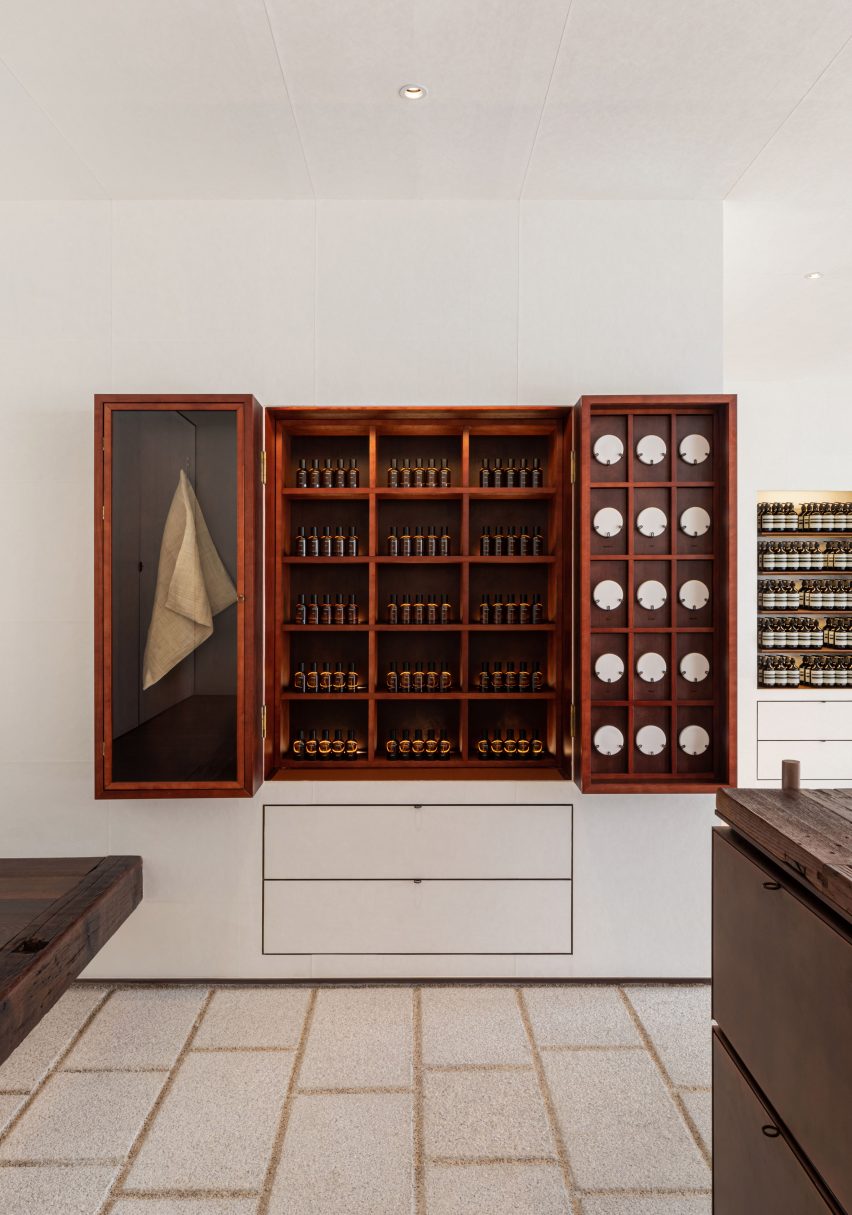
Identified for shops that pay homage to their different areas, Aesop has an outlet in Cambridge outlined by handwoven bulrush cabinets that nod to the close by River Cam and a Sydney retailer furnished with home gadgets to evoke Sixties Australian properties.
The images is courtesy of Aesop.
[ad_2]
Source link



